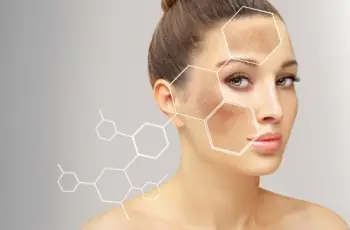
What is the Best Psoriasis Cream? A Complete Guide to Soothing and Treating Psoriatic Skin
Psoriasis is a chronic skin condition that causes red, itchy, and scaly patches (plaques) on the skin.
While prescription treatments—including injectables and oral medications—are highly effective, they take time to work.
During that waiting period, and especially for milder cases, a good psoriasis cream can bring essential relief.
In this guide, we’ll cover the best creams for psoriasis, how they work, and what ingredients to look for based on your symptoms.
How Do Psoriasis Creams Work?
There are four main categories of psoriasis creams, each serving a different purpose:
Soothing and Hydrating Psoriasis Creams
Psoriasis Creams That Remove Scales
Medicated Over-the-Counter Psoriasis Creams
Prescription Psoriasis Creams
Let’s explore each one in more detail.
1. Soothing and Hydrating Psoriasis Creams
These creams focus on relieving dryness and itching—two hallmark symptoms of psoriasis. They don’t treat the underlying inflammation but offer crucial comfort and barrier protection.
Best Ingredients for Hydrating Psoriasis Creams:
Argan Oil – Rich in linoleic acid, a soothing fatty acid
Stearic Acid – A moisturizing fatty acid that prevents water loss
Glycerin – A powerful humectant that draws moisture into the skin
MLE Technology – Mimics the skin’s natural lipid barrier to lock in hydration
Top Picks:
For the Body:
Zerafite Ultra Rich Body Cream
Fragrance-free, non-staining, and deeply hydrating—ideal for body plaques.
Skinceuticals Triple Lipid Restore
Lipid-rich formula softens plaques and reduces roughness and itch.
For the Face & Neck:
Zerafite Barrier Repair Moisturizer
Best for dry, scaly facial psoriasis. Hydrates and prevents further moisture loss.
Zerafite Soothing and Calming Moisturizer
Ideal for facial psoriasis that’s red or inflamed. Contains calming niacinamide and argan oil.
For the Eyelids:
Zerafite Hydrating and Protecting Eye Serum
Gentle, steroid-free formula with niacinamide to protect delicate skin around the eyes—an area easily irritated by psoriasis medications.
2. Psoriasis Creams That Remove Scales
These exfoliating creams help lift and remove the thick silvery scales often associated with psoriasis. Most contain exfoliating acids.
Best Ingredients for Scale Removal:
Salicylic Acid (BHA) – Loosens scales and soothes inflammation
Lactic Acid (AHA) – Hydrates while gently exfoliating
Glycolic Acid or Gluconolactone – Additional options for exfoliation
⚠️ Note: These can sting, especially on cracked or raw skin. Avoid on open areas.
Top Picks:
CeraVe Psoriasis Moisturizing Cream
Combines salicylic acid and lactic acid to soften plaques while maintaining hydration.
NeoStrata Problem Dry Skin Cream
High in AHAs, ideal for thick skin on knees, elbows, and heels. Fragrance-free and emollient-rich.
3. Medicated Over-the-Counter Psoriasis Creams
These creams usually contain low-dose corticosteroids (like hydrocortisone) or other active ingredients that provide moderate anti-inflammatory effects.
Hydrocortisone Creams
Mild and suitable for short-term use on the face and sensitive areas.
Should be used under guidance, especially near the eyes.
Coal Tar Creams or Shampoos
An old-school treatment that slows skin cell growth.
Still used for scalp psoriasis but less popular due to strong odor and staining.
4. Prescription Psoriasis Creams
For moderate to severe psoriasis, prescription creams are often required. These are more potent and must be used under medical supervision.
Common Prescription Options:
High-potency corticosteroids – Reduce inflammation but risk side effects with long-term use
Vitamin D analogs (e.g., Calcipotriol) – Slow skin cell overgrowth
Topical Retinoids (Vitamin A derivatives) – Improve turnover and reduce plaques (not suitable during pregnancy)
Immunosuppressants (e.g., Tacrolimus, Pimecrolimus) – Help reduce immune-driven inflammation
Anthralin – Slows cell growth but can irritate and stain skin/clothing
A dermatologist will help decide which is best based on severity, location, and medical history.
Natural Oils for Psoriasis Relief
Natural oils can support mild psoriasis by restoring skin barrier function—especially those rich in linoleic acid.
Best Natural Oils for Psoriasis:
Argan Oil, Safflower Oil, Grapeseed Oil, Borage Seed Oil
Try: PAORR 100% Organic Argan Oil – affordable, effective, and soothing.
Avoid:
Coconut Oil – Low in linoleic acid and can clog pores or worsen psoriasis.
What About Essential Oils?
Despite popular belief, essential oils do not treat psoriasis. They lack the fatty acids required to repair the skin barrier and can cause irritation.
Cream, Lotion, Ointment, or Oil—What’s Best?
For psoriasis, skip the lotion. Here’s a breakdown:
Form Best For Why
Cream Daily hydration Balanced water/oil content for comfort
Ointment Severe dryness & scaling Occlusive and helps medication penetrate
Oil Mild symptoms or natural care Easy to apply, soothing, non-irritating
Lotion ❌ Not recommended Often too light, may contain alcohols
When Should I Apply Psoriasis Creams?
Apply prescription medications first, directly to the skin.
Then, layer a moisturizer or barrier repair cream on top to lock it in.
This layering helps:
Improve medication absorption, Reduce dryness and itching, Prevent rubbing off onto clothes
Why Moisturizers Are Crucial for Psoriasis
Even if you’re using powerful prescription treatments, a moisturizer is essential. It helps:
Calm itching and dryness
Reduce scale buildup
Enhance medication effectiveness
Protect the skin barrier
The Final Word on Psoriasis Creams
Psoriasis can be persistent, but with the right combination of treatments—both medical and moisturizing—you can manage symptoms effectively.
Whether you opt for a soothing cream, exfoliating treatment, or prescription medication, consistency is key.
And remember: For moderate to severe cases, always consult a board-certified dermatologist. Want a personalized skincare plan based on your skin type? Let’s find your perfect psoriasis routine together.


